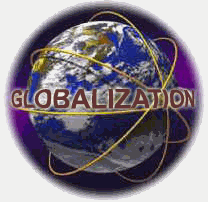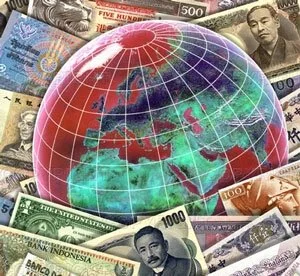GLOBALIZATION OF ISLAMIC FINANCE: STATE STREET ISLAMIC FINANCE CONGRESS BOSTON 6 OCTOBER 2008
October 9, 2008 at 2:48 pm | Posted in Development, Economics, Financial, Globalization, Islam, Research, World-system | Leave a commentKeynote address by Dr Zeti Akhtar Aziz
Governor of the Central Bank of Malaysia at the State
Street Islamic Finance Congress 2008
“Islamic Finance: A Global Growth Opportunity Amidst
a Challenging Environment”
Boston, 6 October 2008.
Zeti Akhtar Aziz: Islamic finance – a global growth opportunity amidst a challenging environment
Keynote address by Dr Zeti Akhtar Aziz, Governor of the Central Bank of Malaysia, at the State Street Islamic Finance Congress 2008 “Islamic Finance: A Global Growth Opportunity
Amidst a Challenging Environment”, Boston, 6 October 2008.
* * *
State Street Islamic Finance Congress 2008
Globalisation of Islamic finance
This decade has witnessed the rapid evolution of Islamic finance. This has resulted in the
dramatic transformation of the industry, from being focused on retail financing to providing an
extensive spectrum of financial products and services, from being focused on the Muslim
community to having an extended reach that serves the non-Muslim community, from being
governed by conventional regulatory and accounting standards to having promulgated its
own standards and finally from being domestic centric to becoming increasingly
internationalised. The Islamic financial services industry has during this decade transitioned
into a dynamic, fast growing and competitive form of financial intermediation servicing the
global community.
It is my honour and great pleasure to be here in Boston to participate in this inaugural State
Street Islamic Finance Congress. With the recent evolution and expansion in Islamic finance,
it has now emerged as a viable new asset class for investors and a competitive form of
financing for businesses. It has therefore, not only allowed for the further diversification of
risks, but, the resulting higher level of foreign participation and the increased cross border
flows has not only strengthened international financial inter linkages between nations but
also contributed to the more efficient international allocation of resources across borders.
Intrinsic strength of Islamic finance
Islamic finance has, thus far, remained positive, despite the current challenging global
financial environment. The strengths in Islamic finance are derived from the Shariah
principles, the key pillar of Islamic finance that has contributed towards its overall stability
and resilience. The Shariah injunctions require that the financial transactions be
accompanied by an underlying productive activity thus giving rise to a close link between
financial and productive flows.
In addition, under the risk sharing arrangement, the Islamic financial institution will share the
profit or loss incurred by the entrepreneur. Under this arrangement, there is an explicit risk
sharing by the financier and the customer and the real activity is expected to generate
sufficient wealth to compensate for the risks. This arrangement, thus, entails the appropriate
due diligence and the integration of the risks associated with the real investment activity into
the financial transactions. In addition, the Shariah principles also prohibit excessive leverage
and speculative financial activities thus insulating the parties involved from excessive risks
exposures.
The intrinsic principle of profit and risk sharing thus provides an in-built check and balance to
the Islamic financial transactions. Explicit in this arrangement is the element of risk
management and governance practices. Hence, it is a modality in which there is strong
explicit emphasis on the economic viability of the underlying assets and on good
governance, ethics and transparency.
A demand-driven industry with growing potential
This decade has seen the global Islamic finance industry evolve from being faith-based to a
business driven industry for all communities. Its significant similarities to the principles in
BIS Review 121/2008 1
ethical finance and socially responsible investment has been a further factor that has drawn
interest in Islamic Finance. Islamic finance does not only involve the avoidance of riba
(usury) but also extends to issues relating to ethical values, such as fair trade and
environmental protection. This has prompted participation from conventional global players in
Islamic financial activities and in the acquisition of strategic stakes in Islamic financial
institutions.
There is also a growing number of established international financial centres such as
London, Tokyo, Hong Kong and Singapore that have initiated plans for the integration of
Islamic finance into their financial systems. Islamic finance has now become one of the
fastest growing segments in the global financial system. The total Islamic assets under
management by Islamic banks and conventional banks offering Islamic banking services is
reported to exceed USD500 billion. This growth has also been in the other major
components of the Islamic financial system. Islamic mutual funds are estimated to be about
USD300 billion, while global takaful or Shariah-compliant insurance contributions are
estimated to be about USD5 billion.
Strengthening the international infrastructure
Integral to the efforts in the development of Islamic finance has been the development of the
supporting international Islamic financial architecture. The establishment of the Islamic
Financial Services Board (IFSB) in 2002 to set the prudential standards for Islamic finance,
and the Accounting and Auditing Organization for Islamic Financial Institutions (AAOIFI)
established in 1990 has been key to ensuring the soundness and stability of the Islamic
financial system.
The IFSB and AAOIFI have had an important role in the harmonisation of prudential and
accounting standards across the different jurisdictions. They are also instrumental in
instituting international best practices in the global development of Islamic finance. The
Islamic financial institutions are also subject to the requirements on anti-money laundering
and anti-terrorist financing.
Opportunities through greater international financial integration
The globalisation of Islamic finance has gained significant momentum in this recent five
years. While the early development of Islamic finance was domestic centric, its
internationalisation is now manifested by increased cross border flows, greater participation
in international Islamic financial markets, the increased presence of financial institutions in
new jurisdictions and more recently, the increased number of Islamic financial institutions
which have shareholders from multiple jurisdictions.
Greater financial integration has essentially been facilitated by the more rapid pace of
liberalisation that has been supported by the progress that has been achieved in the
development of the international Islamic financial infrastructure. This trend has also been
prompted by the need for greater diversification of risks in the management of funds. In the
current international financial environment, this trend has become more pronounced
prompting investors to consider other asset classes and markets that provide stability. Thus
far, the global financial crisis has had limited direct effects on Islamic finance. While Islamic
finance by its very nature only engages in transactions that have underlying tangible
productive activities, the slower overall growth and the increased uncertainties have affected
pricing and activity in certain market segments. However, this in part reflects the shift in
activity from the financial markets to the Islamic financial institutions.
The scope of Islamic financial business has now expanded to more sophisticated financial
products in response to the changing global customer base. Such Shariah-compliant
products include private equity, project finance, the origination and issuance of sukuk, as well as fund, asset and wealth management products. The sukuk market in particular, has
2 BIS Review 121/2008
become an important avenue for international fund raising and investment activities. This
market has expanded by an annual growth rate of 40%. The year 2007 saw an exceptional
growth of the global sukuk market which expanded by more than 70%. New issues during
the year reached a record high to about US$47 billion and the outstanding global sukuk
market has now surpassed the US$100 billion mark. Up until August this year, it has held its
ground with a total global issuance now exceeding US$14 billion, and is expected to exceed
USD200 billion in 2010. This growth is spurred in part by the growing funding requirements in
emerging market economies, in particular, in Asia and the Middle East. This is reinforced by
the continued confidence of investors in the Islamic financial instruments.
Malaysia’s Islamic finance journey
Let me now turn to Malaysia’s journey in the development in Islamic finance. Islamic finance
in Malaysia first started as a strategy for greater financial inclusion, so as to have a greater
outreach to the underserved segment of society to basic banking and insurance products
that are compatible with Shariah principles. After three decades, the Islamic financial industry
in Malaysia has evolved as an integral and competitive component of the overall financial
system that operates in parallel with the conventional financial system.
The Malaysian Islamic financial system is founded on three major strategies. Firstly, the
Islamic financial system has been evolved as a comprehensive financial system that is
diversified in terms of its institutions, markets and players. The Islamic financial system
comprises the Islamic banking institutions, the takaful industry, the non-banking institutions
and the Islamic money and capital markets. The supporting financial infrastructure includes
the robust regulatory and supervisory framework that is reinforced by the legal and Shariah
framework, the payment and settlement systems and the mechanism for the liquidity
operations by the Central Bank.
The assets of the Islamic banking system now comprise 16% of the market, while the takaful
sector has garnered 7% market share. Significant progress been achieved in particular in the
Islamic capital market where the outstanding amount of Islamic private securities amounted
to USD79 billion or 54.3% of the total outstanding private securities in the market. The
number of Shariah-based unit trust funds have also increased to 136 with a net asset value
of over USD5.2 billion while 85% of the listed Malaysian stocks are Shariah-approved
counters.
The second strategy is to accord greater emphasis on the enabling environment for
increased innovation in the Islamic financial industry. The product range in Islamic finance
has now expanded into a broad spectrum of innovative instruments, including investment
and equity linked products based on musyarakah, mudarabah and ijarah. These products are
competitive both in terms of product structure and pricing. The enhanced depth of the Islamic
financial markets, in particular, the sukuk market, has increased the attractiveness of the
Islamic financial instruments as an asset class for investment.
The drive for innovation has been supported by the investment in human capital
development. A sufficient pool of the talent and expertise has been key to the development
of the Islamic financial hub in Malaysia. The International Centre for Education in Islamic
Finance (INCEIF) was established in 2006. INCEIF which has an international faculty and
students from more than 40 countries is focused on programmes for Islamic finance
professionals and specialists in Islamic finance. The first group of students for the Chartered
Islamic Finance Professional qualification, CIFP, offered by INCEIF, is expected to graduate
at the end of this year after completing a three year programme that includes an internship
with an Islamic financial institution. INCEIF also offers a Masters and PhD Programme in
Islamic finance.
BIS Review 121/2008 3
To promote research in Islamic finance, the International Shariah Research Academy (ISRA)
was established this year to conduct applied Shariah research on the contemporary Islamic
finance issues. ISRA also provides a platform that promotes active engagement and
dialogue among global Shariah scholars that promote mutual respect in Shariah and the
convergence of views from different jurisdictions in the global Islamic financial system.
The third strategy is to promote greater financial integration with the global Islamic financial
system. The Malaysian Islamic financial system has also been progressively liberalised to
allow for increased foreign entry and participation in our financial system, thus facilitating
greater cross border flows and thus strengthening the international financial inter-linkages.
This has taken the form of issuance of new licences and increasing foreign participation in
both Islamic banks and takaful companies to 49%. New licences were also issued to foreign
fund managers and foreign stockbrokers. In this new phase of development for Islamic
finance, Malaysia as an international Islamic financial hub, has increasingly become a
meeting place for businesses from different parts of the world that need to raise funds and for
investors that have surplus funds for investment.
Islamic finance going forward
There is now a strong and growing demand for Islamic financial products in the global
market, far exceeding the current availability of financial products and services being
provided by the Islamic financial institutions. Going forward, there is therefore tremendous
upside potential for Islamic finance.
As the pace of development of the Islamic financial services industry accelerates, the
increasingly more complex and challenging environment will continue to shape the
advancement of the industry. Central to this will be the expansion of the business parameters
and innovative product offerings. For this, there is increased investment in research and
development to yield new instruments and structures to meet the changing requirements of
the international community. An area of focus, in particular, is related to the development of
mechanisms for risk mitigation and liquidity management. Of importance, are the solutions
needed to converge the market requirements and the Shariah compliance.
Increased innovation also calls for greater emphasis on the implementation of best practices
and higher standard of risk management. Vital to this is the implementation of the prudential
standards promulgated by the IFSB. There is also a need to leverage more on IT
applications and the strengthening of management capabilities of the Islamic financial
institutions. Going forward, with the increased awareness and understanding of Islamic
finance, the role of market discipline will become increasingly important in driving Islamic
financial institutions towards ensuring Shariah compliance in the operations, in improving
operational efficiency and in instituting sound and dynamic risk management practices.
The forces of innovation also raise a number of issues concerning the divergence of Shariah
views underlying a number of the Islamic financial transactions. While such a divergence of
opinions in Islamic financial transactions is not a new phenomenon, it has now prompted
increased international dialogue among the Shariah scholars from the different parts of the
world. It is the closer linkages between the global Islamic financial markets and the increased platforms for greater engagement on Shariah issues that will contribute towards promoting an increased common understanding and mutual acceptance on the rules, standards and Shariah views, and for convergence to occur. This would evolve global Shariah standards for the Islamic financial industry.
As Islamic finance continues to internationalise with expanding scale, there will be greater
financial intermediation linkages among the East Asian, West Asian, and the Middle East
regions – creating the “New Silk Road”. While this New Silk Road of financial flows is
enhancing connectivity between Asia and the Middle East, both regions have, as in the case of the old Silk Road, extended the New Silk Road to the rest of the world.
4 BIS Review 121/2008
Global investors and the international financial community have already drawn benefits from the increased diversification of investment activity to the two regions. The expansion of the interlinkages of intermediation to and among these regions would in turn contribute towards a more efficient allocation of capital in the global financial system.
Closing remarks
Against a backdrop of an increasingly uncertain global environment, Islamic finance, as a
form of financial intermediation in the international financial system, has continued to be
viable and competitive. In the coming years, the greater global participation in this
developmental process, both directly and indirectly, would enhance the potential role that
Islamic finance would have in contributing towards greater global financial stability in the
international financial system.
BIS Review 121/2008 5
Keynote address by Dr Zeti Akhtar Aziz
Governor of the Central Bank of Malaysia at the State Street Islamic Finance
Congress 2008
“Islamic Finance: A Global Growth Opportunity Amidst a Challenging
Environment”
Boston, 6 October 2008








